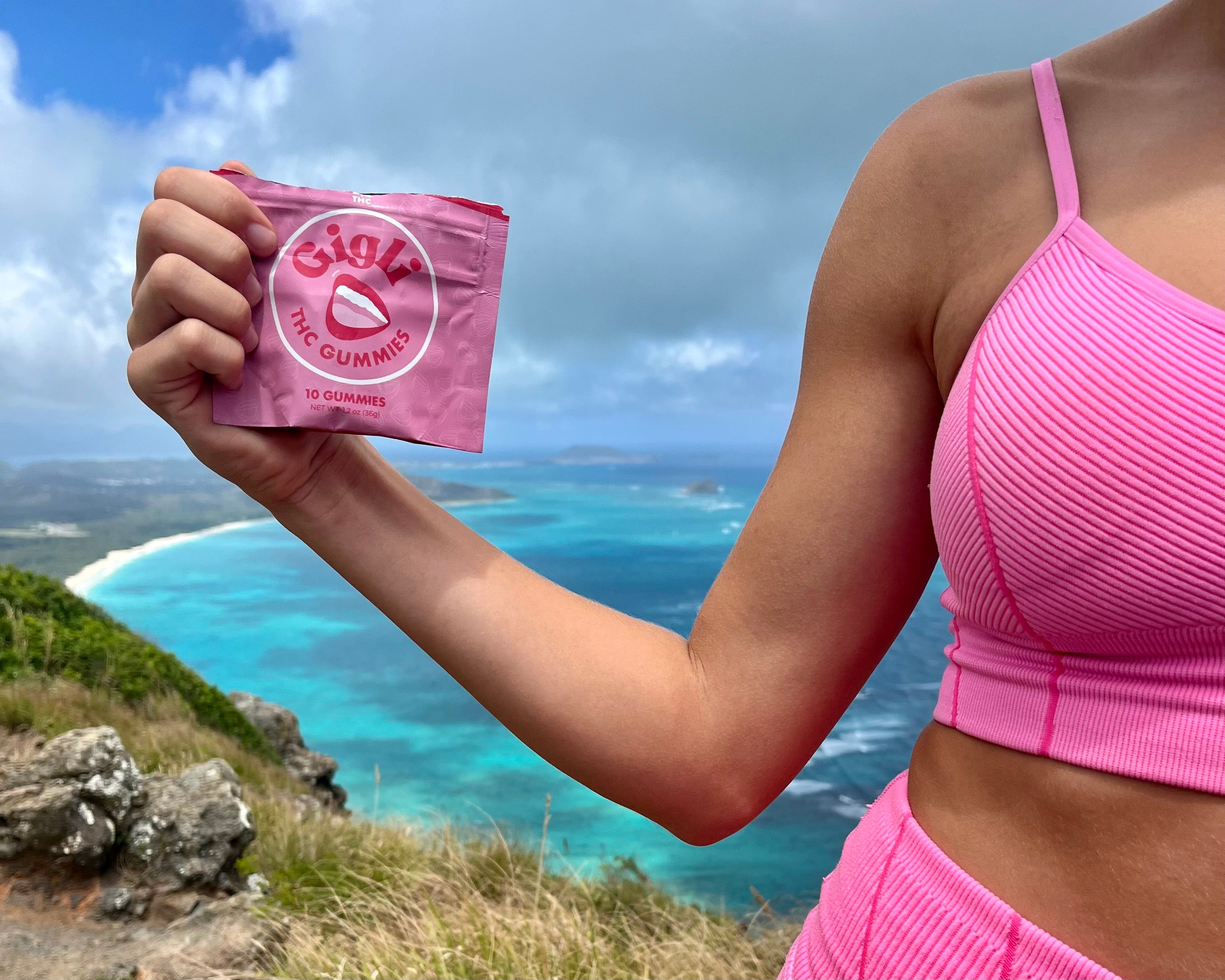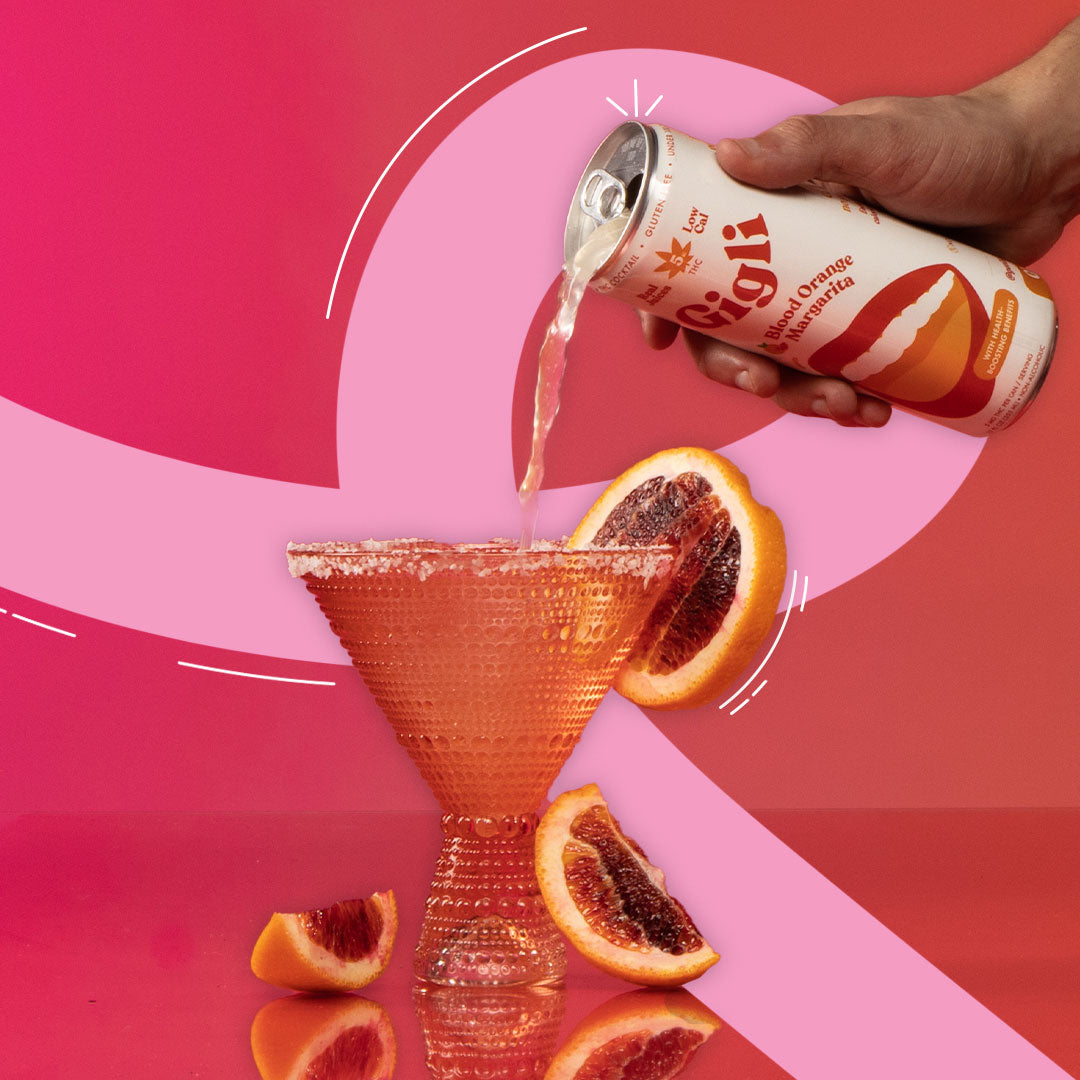
Sweat, Sip, Repeat: Could THC be Your Best Workout Buddy?
With summer vacations and lake days on the horizon, all we have left to do is hit the gym to feel extra confident for the sunny months to come. Whether your ideal workout time is in the morning or at night, we can all use a boost every once in a while, just to go that extra mile. With countless workout plus-ups on the market, we want to touch upon one of our favorites: THC. But how does incorporating THC into your regimen transform an ordinary workout into an extraordinary one? Do hemp and exercise really match well? Let's explore what your workouts can be like with vs. without THC.
Before THC
A typical morning starts with a lull in energy, you can fuel up with pre-workout, a shake, or a light meal and the anticipation of a challenging routine. Your workout begins, pushing limits with every rep and set, whether it be leg day or core day, maybe you are feeling a little distracted or unconnected with your body due to being so accustomed to the routine. Post-workout, the body feels the toll of exertion - soreness sets in, and fatigue creeps up. This might take some time depending on your activity and body, but it will rise at one point. Recovery becomes a race against time, with protein shakes, massage, and rest as the primary tools at your disposal.
Introducing THC
Now, re-imagine this scenario with THC as part of the regimen. The day starts similarly, but with an added twist: a THC pre-workout supplement. This could be in the form of an actual supplement, a gummy or infused in a drink. After about 30 minutes, the usual mental hurdles seem less daunting. The workout no longer feels like a chore but a more enjoyable, immersive experience where you become more mindful and aware of your body. THC can reduce inflammation and allows you to lean into your maximum exertion with precision and ease. Post-exercise, THC aids in a holistic recovery experience and floats you off into the rest of your day.

Understanding THC and Its Interaction with the Body
THC, or Tetrahydrocannabinol, is the psychoactive compound found in hemp and cannabis. It binds to cannabinoid receptors in the brain, influencing mood, perception, and pain. The body's endocannabinoid system, which THC interacts with, plays a pivotal role in maintaining homeostasis, including pain management, appetite, and stress response. These interactions suggests why THC can be such a potent ally in enhancing workout routines and recovery processes. With research on the rise, we learn more and more on the daily about this amazing compound.
The Benefits of THC
To give a better view of the amazing benefits of THC, we have listed the top benefits here for you:
Pain Relief - THC's analgesic properties can help manage workout-induced pain and soreness, making it easier to max out and stick to routines.
Reduced Inflammation - Its anti-inflammatory effects are beneficial for recovery, helping reduce swelling and discomfort.
Enhanced Focus and Enjoyment - Users often report increased focus and enjoyment of activities, turning strenuous workouts into more pleasurable experiences.
Stress Relief - THC can provide relaxation and stress relief, contributing to better mental health and overall well-being.
Improved Sleep - Better sleep quality ensures more effective recovery, crucial for muscle growth and repair.
Does Exercise Release THC?
Exercise and THC have an intriguing relationship. For individuals who consume cannabis before a workout, engaging in physical activity can indeed lead to a notable “second high”: the release of THC stored in fat cells flow back into the bloodstream. This occurs because THC is fat-soluble, meaning it binds to fat cells in the body. When you exercise, particularly during fat-burning activities, your body breaks down these fat cells for energy, thereby releasing any stored THC. Studies suggest that this can result in a temporary increase in THC levels, which might even enhance the post-exercise "high" some people experience, known as "runner's high." However, the effect varies based on factors like body composition, the intensity of the workout, and frequency of cannabis use. So, while exercise won't "release" THC in the sense of producing it, it can certainly reintroduce THC into your system, affecting your mood and sensations post-workout.
THC as a Workout Tool: Elevating Your Routine
Incorporating THC into your workout regimen requires consideration of timing, method of consumption, and dosage. We have compiled our tips and tricks for integrating THC effectively into your daily routine:
THC Pre Workout
Taking THC before your workout can enhance focus and enjoyment. Low doses, like Gigli’s 5mg cocktails, are recommended to avoid any adverse effects on coordination or motivation.
THC Post Workout
For recovery, THC can be taken post-workout to alleviate pain, reduce inflammation, and aid in relaxation. It can be particularly effective when combined with CBD for an enhanced entourage effect. A higher dose like 10 mgs can be used post exercise for recovery and relaxation.
Edibles for Sustained Release
Edibles, like chocolate and gummies, provide a longer, more sustained release of THC, perfect for ongoing pain relief and relaxation post-exercise.
Topicals for Targeted Relief
THC-infused and CBD-infused creams and ointments can be applied directly to sore or inflamed muscles, providing localized relief without systemic effects.
Before You Hit the Gym
The combination of THC and exercise presents a great potential for enhancing workout routines and recovery processes. Whether used pre- or post-workout, THC offers a multitude of benefits that cater to both physical and mental well-being. However, it's important to approach this integration with mindfulness, respecting dosage and personal tolerance to ensure the best outcomes. Don’t overdo it on the first try, but aim at gradually building up, keeping safety as the number one priority. And have fun exploring the mind and body benefits of combining THC and exercise!

